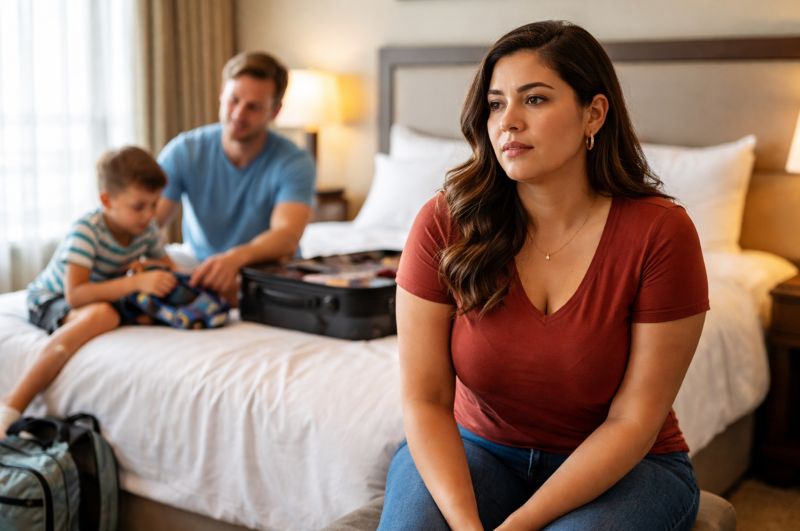Feeling left out can hurt, even when no one is intentionally excluding you. Learn why this happens and how to handle the emotion with self-compassion and clarity.
By Sergio Toledo
Editor-in-Chief, Heed to Heal
Introduction
Have you ever scrolled through social media and seen people hanging out without you—and felt that little sting in your chest? Or been part of a group conversation where you suddenly felt invisible, like no one was really noticing you? That feeling of being left out can hit hard, even when no one’s doing anything wrong. It’s confusing, painful, and surprisingly common. In this article, we’ll explore why you might feel excluded—even when you technically aren’t—and how to navigate those emotions with self-awareness and compassion.
Why Does Feeling Left Out Hurt So Much?
Humans are wired for connection. Belonging isn’t just emotional—it’s biological. Studies show that social rejection activates the same brain regions associated with physical pain (1). So when you feel ignored or left out, your brain may treat it as a threat to your well-being.
Even when exclusion isn’t intentional—or is only perceived—your emotional response can be very real. This is especially true if you’ve experienced social anxiety, past rejection, or childhood emotional wounds that left you extra sensitive to feeling “othered.”
Why You Might Feel Left Out (Even if You Aren’t)
You don’t have to be purposefully excluded to feel excluded. A few common scenarios that trigger this feeling:
- Overthinking: You interpret neutral behavior as rejection (e.g., a friend didn’t text back, so they must be mad).
- Social comparison: You see others together and assume they’re closer to each other than they are to you.
- Past wounds: Old experiences of exclusion can make you hyper-aware of anything that resembles being left out.
- Low self-esteem: If you don’t feel worthy of connection, your brain may search for proof that you don’t belong.
How to Cope When You Feel Left Out
1. Check the Story Your Mind Is Telling You
Pause and gently ask yourself:
- What evidence do I actually have?
- Could this be about something else?
- Am I assuming something based on past pain?
This mindfulness-based approach helps separate fact from interpretation—and brings more compassion into the moment.
2. Name the Feeling Without Judgment
Instead of saying, “They don’t care about me,” say:
“I’m feeling left out right now, and it hurts.”
Naming the emotion without building a narrative around it helps soothe your nervous system and create emotional space for healing.
3. Return to the Present Moment
When you focus on who didn’t invite you or what you’re missing, you disconnect from the life that’s right in front of you. Gently come back to the now:
- Engage in a hobby you enjoy
- Reach out to someone you trust
- Take a walk or practice grounding (like noticing 5 things you can see, 4 things you can touch, etc.)
4. Talk to Someone You Trust
You don’t need to keep it all in. A friend or therapist can help you reflect on whether the situation is worth addressing—or whether it’s more about how you’re feeling inside. If you do speak to the person who may have excluded you, try to lead with curiosity, not blame.
5. Practice Self-Compassion
According to researcher Kristin Neff, self-compassion can reduce the emotional sting of rejection and disconnection (2). Remind yourself:
“I’m not alone in this feeling. Others have felt this too. I am still worthy of connection.”
Treating yourself with kindness during moments of hurt is one of the most powerful tools for resilience.
Final Thoughts
Feeling left out doesn’t mean you’re too sensitive or needy. It means you care. You value connection. And sometimes, the modern world—with its highlight reels and fast-moving friendships—makes it easy to feel like we’re on the outside looking in.
But the truth is: You still matter. You still belong. And your feelings are worth honoring—even when they’re uncomfortable. With a little reflection, compassion, and presence, you can shift from disconnection to a deeper understanding of yourself.
References
- Eisenberger, N. I., & Lieberman, M. D. (2004). Why it hurts to be left out: The neurocognitive overlap between physical and social pain. Trends in Cognitive Sciences, 8(7), 294–300. https://doi.org/10.1016/j.tics.2004.05.010
- Neff, K. D. (2003). Self-compassion: An alternative conceptualization of a healthy attitude toward oneself. Self and Identity, 2(2), 85–101. https://doi.org/10.1080/15298860309032
- Williams, K. D. (2007). Ostracism: The kiss of social death. Social and Personality Psychology Compass, 1(1), 236–247. https://doi.org/10.1111/j.1751-9004.2007.00004.x
Originally published by Heed to Heal, 07.01.2025, under the terms of a Creative Commons Attribution-NonCommercial-NoDerivatives 4.0 International license.






